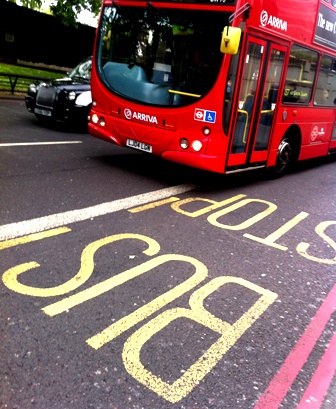Edition number 73; dateline 9 May 2014
The cultural significance of the number 11 bus
Farewell then, Maria Miller, erstwhile secretary of state for culture and another casualty of the political black hole that the Department for Culture, Media and Sport seems to have become. She will not be much missed. As early as February the Leisure Review lamented her ability to offer little more than “competently composed platitudes adequately delivered” and she showed little affinity for, understanding of, commitment to or interest in the issues of sport, leisure and culture for which she was nominally responsible. In the image of her prime minister, she seemed perpetually relaxed, particularly about the slashing of the culture budget, the dissection of her department and the filleting (the premeditated, practised and deadly wielding of a sharp knife) of local government, all in the pursuit of – let us be generous – questionable economic reasoning.
Like a crisply dressed Dr Who, the culture secretary was reincarnated so swiftly that we hardly had time to notice. By the time he had found his new desk, handily in the same building as his old one, Sajid Javid was already having his fitness for purpose scrutinised. With a background in finance and banking (not necessarily, we have discovered to our cost, the same thing) and little obvious commitment to matters cultural, there were stories of his induction involving a hasty trip round some of the most luminous theatres, galleries and museums in walking distance of his office.
While such criticism and attendant implications of philistinism carry the nasty tang of cultural elitism, Mr Javid’s breezy admission that he was no cultural colossus did raise the question of whether it would be better to have a culturally immersed aesthete or a competent and committed political operator in the culture secretary’s seat. With the DCMS now little more than a demoralised tenant of the Treasury and widely recognised as a career-ending (for so many ministers) or career-stalling (for civil servants) backwater, its future as an effective ministry seems limited. But whether its disappearance would be seen as a blow or an opportunity for those of us committed to the value of culture as a national force for good is a matter of great conjecture. Could an effective minister revive the department and its mission to move it closer the centre of the Westminster universe? Or could a ministerial renaissance figure usefully wield influence around Whitehall without the burden of a department to weigh them down?
This is a debate to which we will no doubt return but for the moment it is the manner of Miller’s departure that holds our attention. It seems to be a case study of modern politics. Was Miller so completely disconnected from the non-Westminster reality that she felt no compunction about claiming a raft of expenses that, whatever their legitimacy when judged by her peers, seem so utterly reprehensible to most ordinary observers? That she then sought to justify them, obfuscate in the face of enquiry and be dismissive of the audit process showed just how far removed from the lives of her constituents she stood. Her apology, notably curt whether on the grounds of a highly emotional state or a thinly disguised contempt, was the final, graceless act that sealed her fate.
However successful Maria Miller’s work on behalf of the sport, leisure and culture sector may have been, this level of disconnection among politicians (and it is clear that she is not alone in her attitudes within the palace of Westminster) does the national culture a disservice. An induction course that involves a tour of the high-culture venues of the capital may or may not be sufficient for the post of secretary of state for culture but if there is little cultural connection beyond these glittering palaces of delight it means that an appreciation of why – rather than what – culture is important to the rest of the UK is likely to be incomplete.
This is a political issue rather than a cultural one. Any political operator needs to understand their constituency and as a secretary of state this means the nation rather than those that elect them to their seat, those that they went to school with or those in whose company they feel most comfortable. Indicative of the state of our national politics was the wonder with which the news that Javid’s father was a bus driver was greeted. The son of bus driver reaching such elevated political status! Not so long ago the secretary of state could themselves have been a former bus driver without arousing such wonder; it is also arguably within living memory that this minister could also have put in an early shift on the number 11 before turning up at the department to conduct the business of the day.
Even with the future of culture so precarious in the context of national and local government, the most pertinent question of the day is not where culture stands in relation to national politics but the reverse: where does national politics stand in relation to our national culture? Just as ballet or opera are perceived by some as something that other people do, the same is now widely accepted to be the case with politics: it is something that other people – other rich and well-connected people – do, something that holds little prospect of involvement for us.
If the successes of the sport, leisure and culture sector have taught us anything it is the lesson of inclusion. Before politicians lament the lack of political engagement among the electorate and resort to blaming voters for not making the effort to be interested, they should have a word with their local leisure management professionals and ask them how they do it. They should also remember that the number 11 bus goes up Whitehall, right past the door of the Treasury.
Jonathan Ives
Editor

